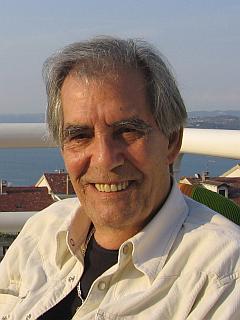
Andrés Valdés, a Cuban immigrant to Slovenia, introduced the country to a new art form, and became a figure both beloved by children and instantly recognized by several generations of adults.
Born in the Cuban capital of Havana in 1936, Valdés quickly emerged as a capable dancer and actor. Just months after Castro’s revolution swept the Caribbean island, Valdés decided to move to Europe. In France, mimes were at the height of popularity at the time, and Valdés got the opportunity to study the art form under the master Marcel Marceau. The young Cuban was as gifted student, and he soon became Marceau’s assistant.
Valdés was a restless spirit, however, and decided to travel further east – he was thinking of going as far as Japan. However, fate brought him to Ljubljana, where he knew several Slovenian mime artists, and where, conveniently for him, Cuban citizens did not need entry visas in 1964.
The art of mime – in all its expressive complexity -- was something new and exciting in Slovenia, and Valdés didn’t take long to become famous throughout Yugoslavia by making appearances in schools and television. Meanwhile, he found “an oasis of peace” in Slovenia. When he was still struggling to earn a living as a mime, Valdés even gave up food for days, but he soon became an established name, and was eventually named a lecturer at Slovenia’s leading acting academy. Always committed to improvisation, Valdés went on to develop his own, “Slovenian” style of mime. He married a Slovenian dance instructor, and opened his own mime studio in 1987.
Since Slovenia’s independence, Valdés has increasingly expressed his disappointment with the state of the performing arts in Slovenian schools. His invitations to perform in front of children slowly dried up. Many schools have become cash-strapped and began to view the performing arts as an unnecessary luxury.
Still, Valdés says he is proud to consider himself a Slovenian. A recent visit to his native Cuba – the first in decades --, left him disillusioned with life under the Castro regime and the U.S. embargo. In Slovenia, he remains a widely respected figure – and his pioneering work has made him synonymous with the ancient art of mime itself. In 2010, almost a half century since his arrival in his adoptive homeland, he received a lifetime achievement award from the Slovenian Association of Dramatic Artists.


































































